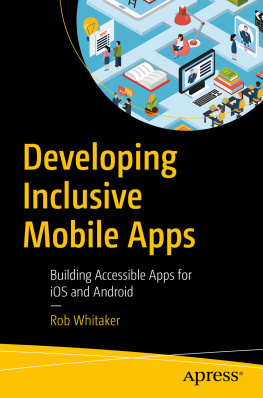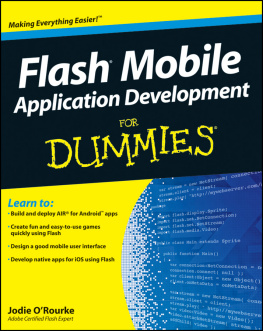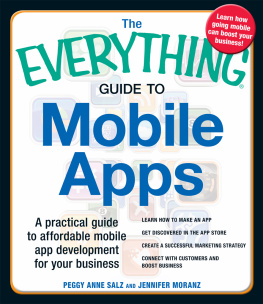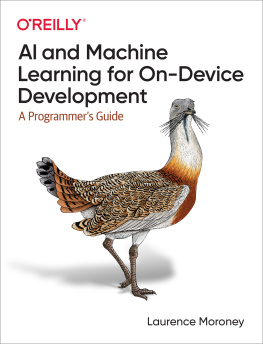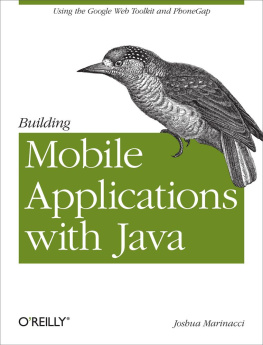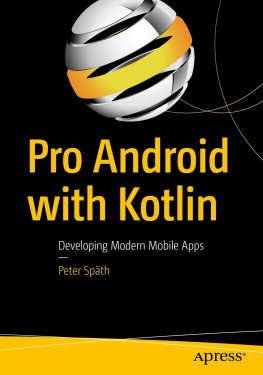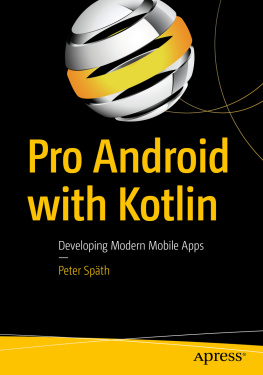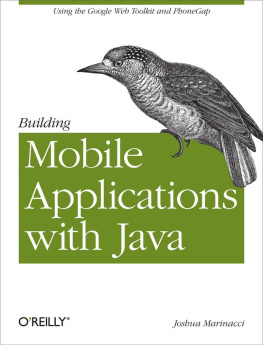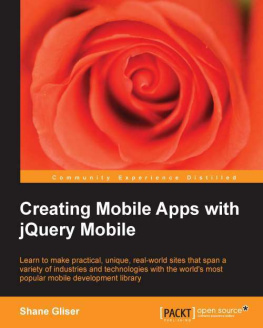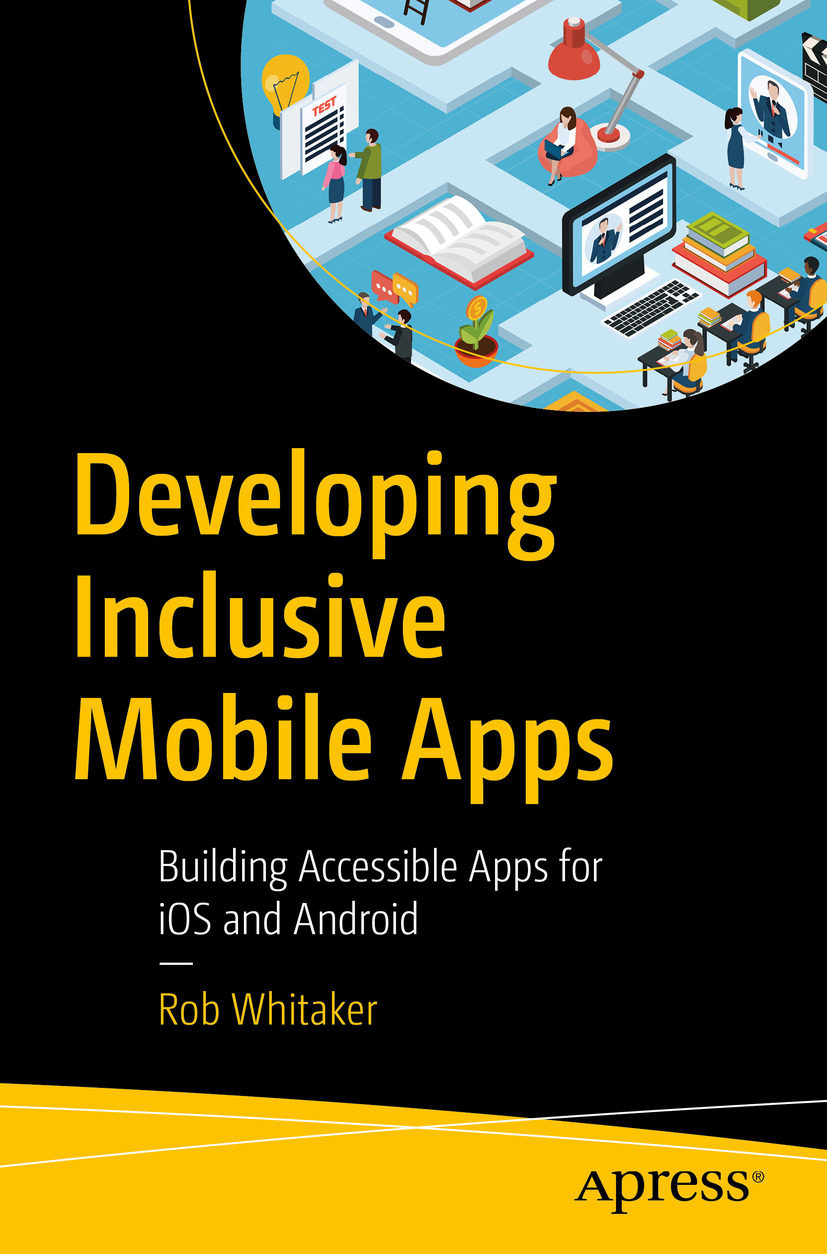Rob Whitaker - Developing Inclusive Mobile Apps: Building Accessible Apps for iOS and Android
Here you can read online Rob Whitaker - Developing Inclusive Mobile Apps: Building Accessible Apps for iOS and Android full text of the book (entire story) in english for free. Download pdf and epub, get meaning, cover and reviews about this ebook. year: 2020, publisher: Apress, genre: Home and family. Description of the work, (preface) as well as reviews are available. Best literature library LitArk.com created for fans of good reading and offers a wide selection of genres:
Romance novel
Science fiction
Adventure
Detective
Science
History
Home and family
Prose
Art
Politics
Computer
Non-fiction
Religion
Business
Children
Humor
Choose a favorite category and find really read worthwhile books. Enjoy immersion in the world of imagination, feel the emotions of the characters or learn something new for yourself, make an fascinating discovery.
- Book:Developing Inclusive Mobile Apps: Building Accessible Apps for iOS and Android
- Author:
- Publisher:Apress
- Genre:
- Year:2020
- Rating:4 / 5
- Favourites:Add to favourites
- Your mark:
Developing Inclusive Mobile Apps: Building Accessible Apps for iOS and Android: summary, description and annotation
We offer to read an annotation, description, summary or preface (depends on what the author of the book "Developing Inclusive Mobile Apps: Building Accessible Apps for iOS and Android" wrote himself). If you haven't found the necessary information about the book — write in the comments, we will try to find it.
By failing to consider those with needs different to ourselves, we are telling these people they are not welcome in our app, and therefore that technology as a whole, is not for them. This is not hyperbole23% of people in the US with a registered disability arent online at all, thats three times more likely than the general population. When asked why theyre not online, disabled respondents say their disability prevents them or that using the internet is too hard.
To help your apps combat the issue of digital exclusion, this book covers considerations and tools mobile developers, or anyone creating mobile experiences, can use to make mobile work better for those with disabilitiesmental or physicaland how to create a better experience for everyone.
Software is not made up of cold, unthinking algorithms. Software is a craft in the truest sense of the word, and one of the greatest tools you can have as a craftsperson is empathy for the people who will be using your app. Each one of whom is an individual with different abilities, experiences, knowledge, and circumstances.What Youll Learn
- Create mobile experiences that work for as many people as possible
- Incorporate a worldview of accessibility and customer service into your design
- Work with accessibility tools and techniques commonly available for developers
Who This Book Is For
Mobile developers working solo or as part of a team. UX designers, quality engineers, product owners, and anybody working in mobile.
Rob Whitaker: author's other books
Who wrote Developing Inclusive Mobile Apps: Building Accessible Apps for iOS and Android? Find out the surname, the name of the author of the book and a list of all author's works by series.

